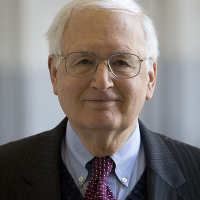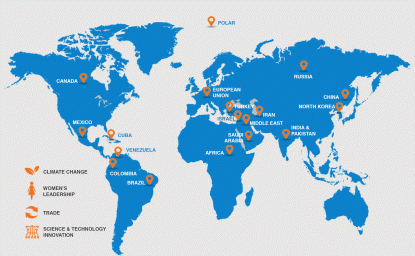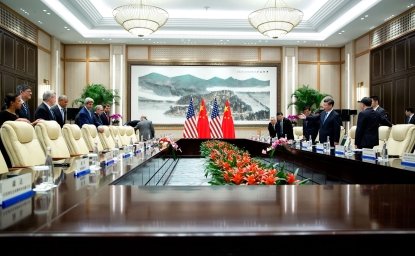East Asia Expects:
- Has the growing belief among regional countries that the balance of power in the western Pacific is shifting in Beijing’s favor.
- East Asians are looking for signals from the new U.S. administration as to how active it will be in offsetting China’s burgeoning economic influence.
- And the U.S. have the potential to continue to do well if key relationships and friction points are managed properly.
Q: What is the greatest challenge facing the new administration in East Asia?
A: The biggest challenge facing the new administration in East Asia will be to restore confidence that the United States intends to remain fully engaged in the region. East Asia is home to big powers harboring mutual suspicions and historical grievances that are feeding a wave of nationalism. The US election campaign sent two disturbing messages to our friends and allies in the region:
First, that the dysfunction in the US political system is likely to continue and will hamper US reliability as a long term strategic partner; and
Second, that the United States is turning inward and is moving toward a protectionist trade policy.
These perceptions are reinforced by the growing belief among regional countries that the balance of power in the western Pacific is shifting in Beijing’s favor. Asian leaders recognize that the United States still has a substantial lead over China in terms of air and naval power. Nevertheless, some countries are beginning to adjust their foreign and security policies to accommodate Chinese interests. Washington must move quickly to address this erosion of confidence in the US ability to continue its traditional role as the guarantor of regional peace and stability.
The North Korean nuclear problem is the biggest immediate challenge. US policy towards North Korea is at an impasse. Pyongyang is too far advanced in its development of nuclear weapons to bargain them away. Denuclearizing the Korean peninsula must be a long term objective.
Short term US policy must focus on containing Pyongyang's nuclear program and halting further missile tests. US options are limited by the interests of our South Korean ally. Any US policy for dealing with North Korea that lacks ROK support would inflict lasting damage on a vital relationship.
Beijing's interests in North Korea must also be taken into account. From Beijing's standpoint tolerating a brutal regime, even one that acts in ways that damage Chinese interests, is preferable to the strategic uncertainty that would result from regime change. Sanctions against North Korea are a necessary but insufficient tool for halting North Korea's nuclear buildup. A bold new initiative is called for that addresses Pyongyang’s security concerns. If rejected, this would pave the way for harsher options.
With respect to the territorial frictions in the East and South China Seas, the predominant US interests are in preserving freedom of navigation, strengthening a rules-based order, and in fostering peaceful resolution of the disputes. US interests will be best served by adhering to strict neutrality on the territorial claims, lowering the profile of its freedom of navigation operations, and giving greater weight to diplomacy in its approach.
The outcome of the US presidential elections has sealed the fate of the Trans-Pacific Partnership but has not negated the enormous US economic interests in East Asia, as a market for US goods, as an attractive target for US investment, and as a region with huge growth potential. East Asians are looking for signals from the new US administration as to how active it will be in offsetting China’s burgeoning economic influence.
Washington must also give early attention to two linked medium term issues: the unsettled outlook for cross-strait relations between Taiwan and the mainland, and the emerging restiveness in Hong Kong. Also looming is a key longer-term policy issue, which is how to maintain the credibility of our alliances with Japan and the Republic of Korea in the face of China’s determination to erode US air and naval superiority within the first island chain.
East Asia deserves careful policy attention. In contrast to the negative trends in the Middle East and Europe, East Asia has the potential to continue to do well if key relationships and friction points are managed properly. At the same time, missteps could have serious consequences.
Author

Founding Director Emeritus, Kissinger Institute on China and the United States

Kissinger Institute on China and the United States
The Kissinger Institute works to ensure that China policy serves American long-term interests and is founded in understanding of historical and cultural factors in bilateral relations and in accurate assessment of the aspirations of China’s government and people. Read more


Indo-Pacific Program
The Indo-Pacific Program promotes policy debate and intellectual discussions on US interests in the Asia-Pacific as well as political, economic, security, and social issues relating to the world’s most populous and economically dynamic region. Read more

Explore More
Browse Insights & Analysis
What Does the World Expect of President-elect Trump?

What Does the World Expect of President-elect Trump: China

Promoting Convergence in US-Brazil Relations
